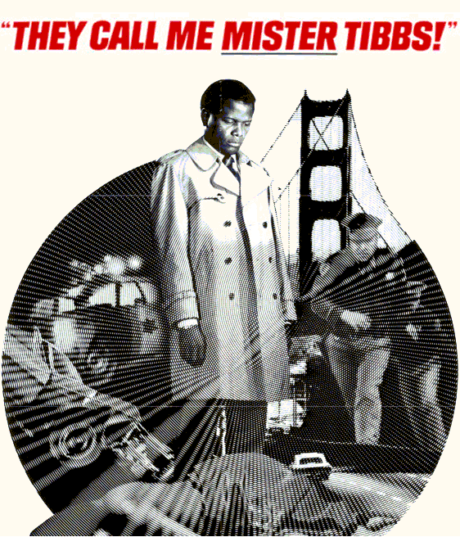by Howard McQuitter II

They Call Me Mister Tibbs!
Sidney Poitier (1927-2022)
Sidney Poitier was (and is) a trailblazer for Black thespians in Hollywood and outside who, then and now, are undervalued on screen and elsewhere. (Including the NFL that touts a solid majority of Black players, but stingy about hiring Black head coaches, and to this day no Black owner of any of the 32 teams.) He’s a native of Cat Island, Bahamas, born on February 20, 1927. The youngest of nine children to Evelyn Outten and Reginald James Poitier, he grew up in abject poverty and little education. His family moved to the capital Nassau in 1937, after Florida stopped imports of Bahamian tomatoes, the life bread for the family. At the time, he had no knowledge of segregation which he would face at age 15 in Florida where he was sent to live with relatives.
Lying about his age, the 16 year old young man joined the Army working as an orderly with the 126th Medical Detachment at a veterans hospital on Long Island. He did not last long in the Army because he faked a mental illness, was finally discharged in 1945, and returned to New York.
He began to read the The Amsterdam News where he saw ads calling for auditions for actors at the American Negro Theater. His first audition failed miserably. Speaking in a strong West Indian accent with a limited education seemed to get him nowhere. But another employee at the restaurant where he was working helped him with his English.
As if an angel had guided him forward, he landed an audition with an all-Black production of Lysistrata in 1946, thanks to Harry Belafonte who couldn’t make the rehearsal. (Lysistrata received bad reviews from critics, however.)
Mr. Poitier’s first full length film role on the silver screen, No Way Out (1950), features him as a doctor who’s being hounded by a virulent racist. Poitier’s point of view (as with other upcoming Black actors and actresses of the day) refused to play the earlier versions of Black thespians in Hollywood cast as “Stepin Fetchit” characterizations. Oscar Micheaux, grandfather of Black film, an independent filmmaker, rendered his cast members in dignified fashion in his films lasting from circa 1912 to 1948.
Poitier, dark-skinned and handsome, had an infectious appeal not to mention the versatility to play a variety of roles – doctor, school teacher, clergyman, freedom fighter, lover, detective, and much more.
His contributions to the civil rights movement in the 1960s are inescapable, along with Harry Belafonte and others. At the historic March on Washington in 1963, he (as well as Marlon Brando, Charlton Heston, Shelley Winters, and others) showed up to make America do the right thing by creating equality for all Americans.
Poitier opened the doors for future Blacks in Hollywood such as Denzel Washington, Morgan Freeman, Spike Lee, Eddie Murphy, Laurence Fishburne, Whoopi Goldberg, Ava DuVernay, Mahershla Ali, and many others. He acted in 55 films. He directed 9. He produced 4. He won one Oscar for a leading role in Lilies of the Fields (1963).
Some of Sidney Poitier’s Films: No Way Out (1950), Blackboard Jungle (1955), Edge of the City (1957), The Defiant Ones (1958), A Raisin in the Sun (1961), Paris Blues (1961), Lilies of the Field (1963), A Patch of Blue (1965), To Sir, with Love (1967), In the Heat of the Night (1967), Guess Who’s Coming to Dinner (1967), They Call Me Mister Tibbs! (1970), Brother John (1971), Buck and the Preacher (1972), Uptown
Saturday Night (1974), David and Lisa (1998), The Jackal (1997), Mandela and de Klerk (1997), Separate But Equal (1991), Let’s Do It Again (1975).
He’s one of many, many examples of African Americans who have to climb much harder barriers in any field. Sidney Poitier, we won’t ever forget you.









